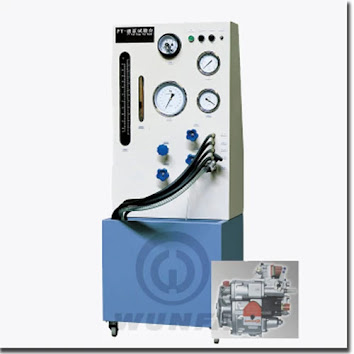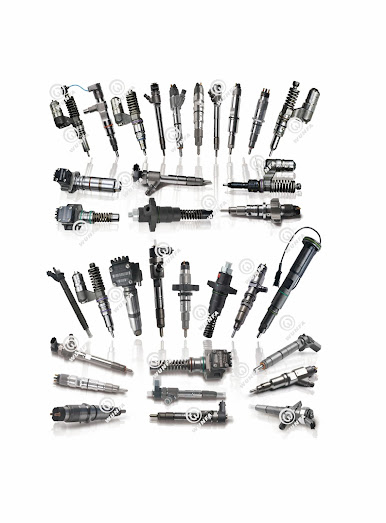Pumping Up Performance: Unveiling the Secrets of Fuel Pump Test Benches
The heart of any internal
combustion engine, be it a powerful car or a workhorse tractor, relies on a
vital component: the fuel pump. This unsung hero ensures the precise delivery
of fuel, directly impacting engine performance, efficiency, and emissions. But
how do we guarantee its optimal operation? Enter the fuel pump test bench, a
specialized piece of equipment that plays a critical role in maintaining top
engine health.
What is a Fuel Pump Test
Bench?
Imagine a platform
designed to replicate the real-world demands placed on a fuel pump. That's
essentially what a fuel
pump test bench is. It allows technicians and manufacturers to simulate
various operating conditions, such as engine speed, fuel pressure, and
temperature. By mimicking these conditions, the bench can accurately evaluate
the pump's performance, identify potential issues, and ensure it meets specific
standards.
 |
| Fuel pump test bench |
What Does a Fuel Pump Test Bench Do?
These versatile machines
offer a range of functionalities:
Performance Measurement:
They measure critical parameters like flow rate, pressure, delivery volume, and
injection timing. Deviations from specifications indicate potential problems
that need attention.
Calibration and
Adjustment: Many benches allow fine-tuning of the pump's performance to bring
it back within optimal operating range, ensuring efficient fuel delivery.
Durability Testing: By
simulating extreme conditions like high pressure and temperature, benches can
assess the pump's long-term reliability and identify potential weaknesses.
Research and Development:
Manufacturers utilize benches to design, test, and improve new fuel pump
technologies, pushing the boundaries of efficiency and performance.
Benefits of Using a Fuel
Pump Test Bench:
Improved Engine
Performance: Accurate fuel delivery optimizes combustion, leading to better
power, fuel economy, and lower emissions.
Reduced Downtime: Early
detection and diagnosis of pump issues prevent breakdowns and costly repairs,
keeping engines running smoothly.
Enhanced Safety: Ensuring
proper fuel pressure and flow minimizes the risk of engine fires and other
safety hazards.
Quality Assurance: Manufacturers can guarantee the performance and reliability of their pumps before they reach the market.
 |
| Test Bench |
Types of Fuel Pump Test
Benches:
Different types of
benches cater to specific needs:
- Mechanical benches: These traditional
setups physically drive the pump using motors and gears.
- Electronic benches: Modern versions
utilize computer controls and advanced sensors for precise testing and data
analysis.
- Flow benches: These benches focus on
measuring the fuel flow rate and identifying inconsistencies.
- Combination benches: Some offer a
combination of functionalities for comprehensive testing.
The Future of Fuel Pump
Test Benches:
As engine technology
evolves, so too will test benches. We can expect advancements in automation,
data analysis, and simulation capabilities, leading to even more efficient,
accurate, and comprehensive testing solutions.
Conclusion:
Fuel pump test bench play a critical role in ensuring optimal engine performance, reliability, and safety. By simulating real-world conditions and analyzing key parameters, these versatile tools empower technicians and manufacturers to keep engines running smoothly and efficiently. As technology progresses, fuel pump test benches will continue to be essential tools in the pursuit of cleaner, more efficient, and powerful engines.



Comments
Post a Comment